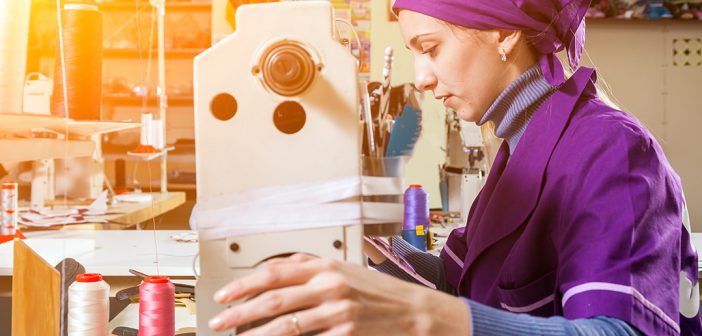As New York Fashion Week continues amid the COVID-19 pandemic, many industry jobs are quickly disappearing due to the ongoing quarantine. The fashion industry was already experiencing a tectonic shift before the pandemic. Fashion shows evolved into unsustainable marketing spectacles, work dress codes became obsolete, and shoppers left brick-and-mortar shops to buy online. In the last couple of months alone, J. Crew, Neiman Marcus, Brooks Brothers, J.C. Penny, and Anne Klein have all filed for Chapter 11 bankruptcy. Century 21 followed suit this past week. As the dust settles, Fordham experts said, it’s important to recognize who will be hit hardest, and to hold executives responsible for the fallout.
Ariele Elia, assistant director of the Fashion Law Institute at Fordham Law, said first off, we must distinguish the less-dire Chapter 11 bankruptcy from Chapter 7.
“Chapter 11 bankruptcy is where a brand or company is restructuring. Chapter 7 is where they’re actually liquidating the business,” said Elia. “With COVID, a lot of brands have filed Chapter 11 to rethink what is essential. Do they need to trim down? Do they have to fix their processes? Will the brand still exist? Will it exist in a different form?”
As companies begin to answer these questions and reconfigure themselves, a few distinct aspects of the industry will likely remain the same
“Women have always been the primary producers of fashion and textiles, pretty much everywhere in the world through all the time, with little exception, and have done it in addition to child-rearing,” said Allison Pfingst, adviser and administrator of the Undergraduate Fashion Studies Program at Fordham. “Only when it becomes very profitable do men tend to step in and start taking on roles.”
Without a doubt the current crisis and resulting layoffs will directly affect women and children, said Lyn Slater, Ph.D., a recently retired professor from the Graduate School of Social Service . A noted fashion influencer, Slater publishes The Accidental Icon, a popular blog, and has nearly 750,000 followers on Instagram.
“A lot of the employees who are in the retail sector, who are garment workers, who are doing hands-on manufacturing, the selling, and the merchandising, are predominantly women, and these are women who have been laid off,” said Slater, whose research focused primarily on issues facing women and children. “Even if they’re lucky enough to have kept a job, they have to negotiate working virtually as well as manage their children’s education.”
Slater expressed particular concern for women working in fashion’s manufacturing sector, which she noted has a history of dangerous working conditions going as far back as the 1911 Triangle Shirtwaist Factory fire and on through to the 2013 collapse of a garment factory in Bangladesh. She added that this past summer a British factory in Leicester, England, forced women to work in close quarters, despite the dangers of contracting COVID-19. This produces a ripple effect, she said, noting that there’s plenty of research that shows a woman’s well-being contributes to her family’s health, which in turn contributes to her community’s economic power.
Paying Up
Slater said the good news is that Instagram has become a very powerful activist tool, shining a light on malpractices, like the ones uncovered at the Leicester factory. Over the last few months, activists have successfully pressured companies to guarantee that their products are made in safe environments and that their workers get paid—particularly now that orders have been canceled due to the pandemic.
“There’s this whole movement called #PayUp that really forced fashion brands who were not paying garment workers to have to pay up. One by one, the brands fell to the pressure,” said Slater. “This is an amazing time for activism. There were a number of initiatives that young designers did that I was involved in where they were making masks as a way of employing and paying laid-off garment workers.”
She said that the fashion activists’ quick response to workers’ needs contrasts shallow perceptions of fashion.
‘Fashion Is Not Frivolous’
“I think the first step is knowing fashion is not frivolous. Fashion is about human rights. Fashion is about fair labor. Fashion is about women. That fashion is about inclusion, and all of these things impact families,” she said.
Elia said that she’s observed several solutions that promote safe working conditions in the current climate.
“In Peru, a lot of the larger brands gave work to women that were working at home, so they wouldn’t have to then commute to the factory,” said Elia. “The woman could raise her children and also make some money and become financially independent, which I thought was a wonderful idea.”
Pfingst said consumers can play an important role in helping working women around the globe.
“If you are consuming intentionally, you know where your clothes come from, you know that the women who made it were paid well, you know that it’s a female-owned store, it’s a black-owned store, or it’s whatever kind of area you want to support, then fashion can be a very productive form of activism, especially in our Instagram-media-driven world.”
More from Fordham experts on the impact of COVID-19 on fashion and personal style.



